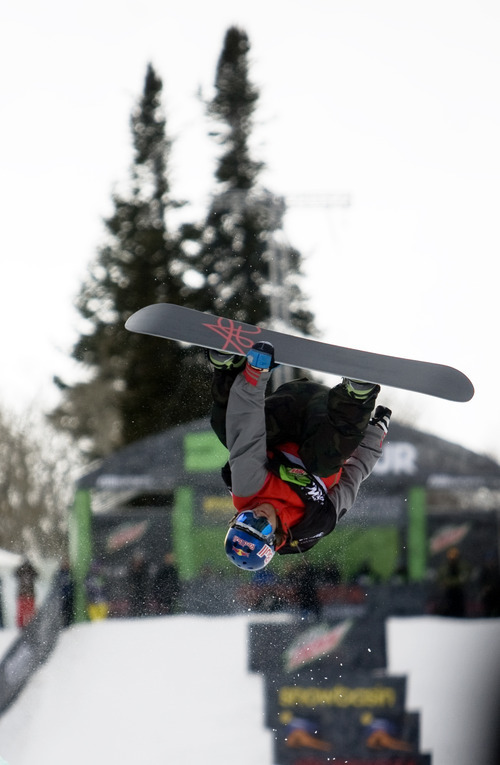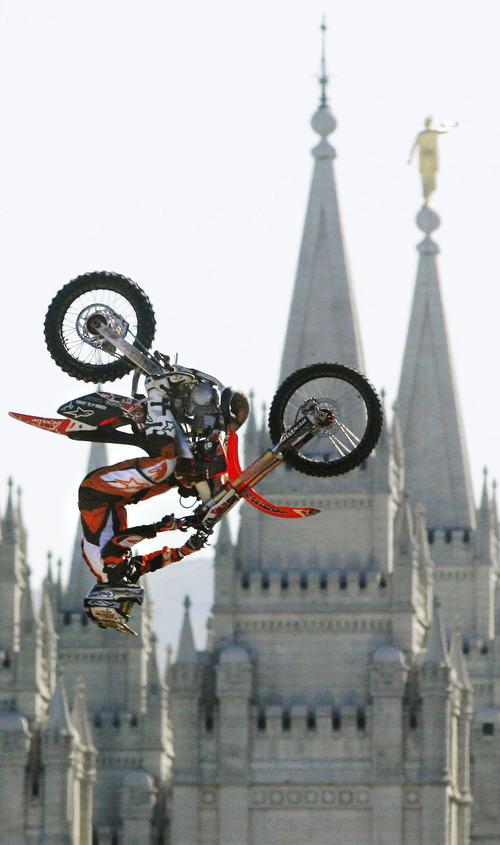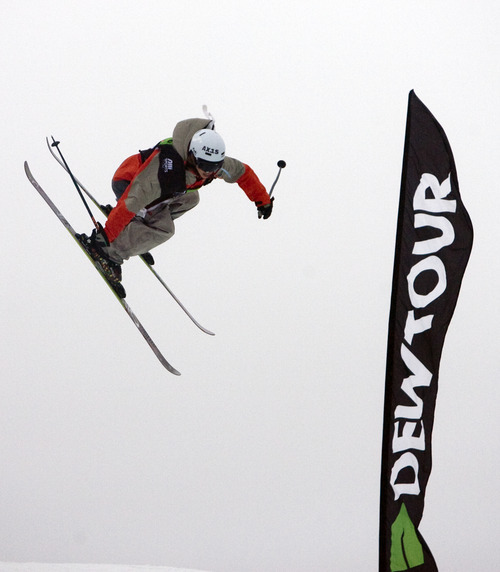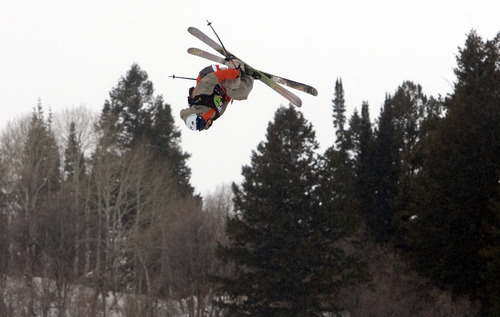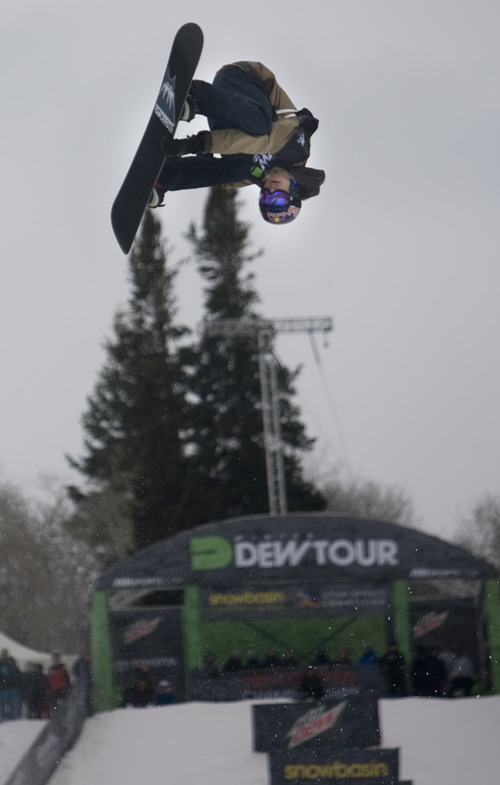This is an archived article that was published on sltrib.com in 2012, and information in the article may be outdated. It is provided only for personal research purposes and may not be reprinted.
Even as someone who could not distinguish between the Armadillo and Tailwhip tricks in action sports, I recognize the loss of the Dew Tour as a defeat for Utah.
The State of Sport just absorbed a crash.
The summer and winter versions of the Dew Tour, with events such as BMX bicycling and snowboarding, may play to a niche audience, but that following is growing steadily. A sports traditionalist like myself could only be impressed by the crowds these tour stops attracted in Salt Lake City and Snowbasin, the economics they drove and the exposure they brought to the state.
I'm in favor of anything that promotes Utah, and the Dew Tour did it like few undertakings ever have.
The irony is that the Dew Tour was staged and supported here as well or better than anywhere, yet a new strategy that trimmed the former seven-event calendar to three stops annually left out Utah in favor of these destinations: San Francisco; Breckenridge, Colo.; and Ocean City, Md.
The change of venues led Jeff Robbins, CEO of the Utah Sports Commission, to rationalize the state's loss by citing "a life cycle" in the world of action sports.
In other words, these dudes tend to move around.
Yet while there seemingly was nothing more the Sports Commission could have done to keep the Dew Tour, this is a setback. There's a reason Robbins consistently ranks high in The Tribune's annual listing of the 25 most influential people in Utah sports. He's succeeded in bringing major sporting events to Utah and creating attention for everything the state has to offer.
While many of us had never heard of a lot of those sports until the dirt started piling up inside and outside of EnergySolutions Arena, this stuff worked here. This is the reality of the sports-hosting business, then: If you're going to claim $75 million in economic benefits over five years, you have to live with some headlines that speak of a loss when they go away.
Any sport that features a "cash roll" as a signature move makes a dent, right?
Robbins and his staff continually are looking for what's next in sports, and they've managed to stay ahead of the curve. Undoubtedly, they will find replacements, and it's likely that the Dew Tour itself would recognize what it's missing and return to Utah in 2014.
Until then, a lot of imaginary seats and standing room will go unoccupied. The University of Utah's Pac-12 Conference affiliation brought thousands of football fans to Salt Lake City in 2011, but the Utes have only four home conference games this season. The United States Golf Association is staging a national tournament in Utah for the first time, but the U.S. Amateur Public Links Championship at Soldier Hollow is not a major spectator event.
The Dew Tour brought 60,000 fans downtown over four days in 2010 and 44,000 to Snowbasin during a weekend in 2011. That's astounding. Beyond that, there's the value of television exposure that generally sends a positive message about Utah.
Add it it up, and losing the Dew Tour will undo a lot of the good that the Sports Commission has done around here. That's seemingly no fault of its own, just a function of NBC's decision and the vagaries of dealing with the action sports world.
For its next trick, the Dew Tour someday will spin and contort itself back to Utah. Until then, it will be missed, whether you know it or not.
Twitter: @tribkurt


